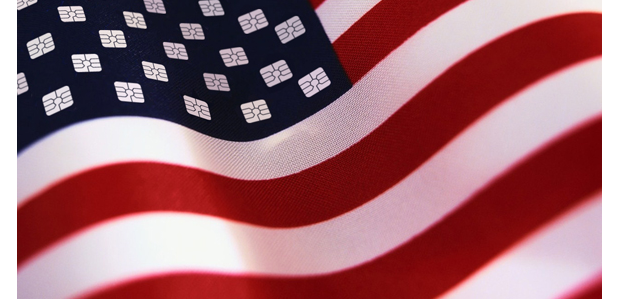
In a recent forecast, nine of the country’s largest payment card issuers who participate in the Payments Security Task Force (PST),estimate that they will have issued more than 575 million chip-enabled payment cards by the end of 2015, according to a press release. The participating issuers include Bank of America, Capital One, Chase, Citi, Discover, Independent Community Bankers of America (representing issuing members), Navy Federal Credit Union, US Bank and Wells Fargo & Company.
“These numbers reflect the significant momentum behind the adoption of EMV chip in the United States,” said Ryan McInerney, president of Visa Inc. “By the end of next year, these issuers estimate that one in two of their U.S. payment cards will be chip-enabled, which represents real progress given the scale and complexity of this overall effort.”
The task force plans to update the issuer forecast regularly and expand it to include acquirer and merchant perspectives on EMV chip terminalization.
“The move toward enhanced security for cardholders and merchants is real and tangible,” said Chris McWilton, president, North American Markets, MasterCard. “We’re gaining alignment around the most significant challenges where the industry needs to have a common foundation.”
To promote EMV chip adoption, the task force is working to identify best practices around merchant testing and certification to help significantly reduce the testing and implementation time.
“The pace of EMV adoption is rapidly accelerating with many institutions already issuing EMV chip cards, and even more coming onboard every month,” said Guy Chiarello, president, First Data. “First Data is strongly encouraging all institutions to launch their EMV plans immediately, and not wait for the October 2015 liability shift. Issuing EMV now will benefit consumers by making the most secure payment card available sooner, while reducing fraud losses and enhancing payments system security for all.”
Among the next priorities for the task force is identifying an actionable, long-term roadmap to deliver a consistent level of security for payments in the digital and physical environments. Part of this will include providing clarity around enhanced security solutions like tokenization and point-to-point encryption.
“Community banks are nimble and able to move quickly on technological advances once the business case for such changes are clear,” said Camden R. Fine, president and CEO, Independent Community Bankers of America. “It’s evident that EMV chip-based technology is an effective control against card counterfeiting and an important step forward as community banks plan ahead for our customers’ security and ease of payment when using cards to make a purchase.”
The Payments Security Task Force was announced in March 2014 to drive executive level discussion that will enhance payments system security. The task force includes a diverse group of participants in the U.S. electronic payments industry including payment networks, banks of various sizes, credit unions, acquirers, retailers, point-of-sale device manufacturers and industry trade groups.
Among the participants are Bank of America, Capital One, Chase, Citi, Credit Union National Association, Discover, First Data, Global Payments Inc., Independent Community Bankers of America, National Association of Federal Credit Unions, MasterCard, Navy Federal Credit Union, Shell, Subway, US Bank, VeriFone, Visa and Wells Fargo & Company.
Banking 4.0 – „how was the experience for you”
„To be honest I think that Sinaia, your conference, is much better then Davos.”
Many more interesting quotes in the video below: